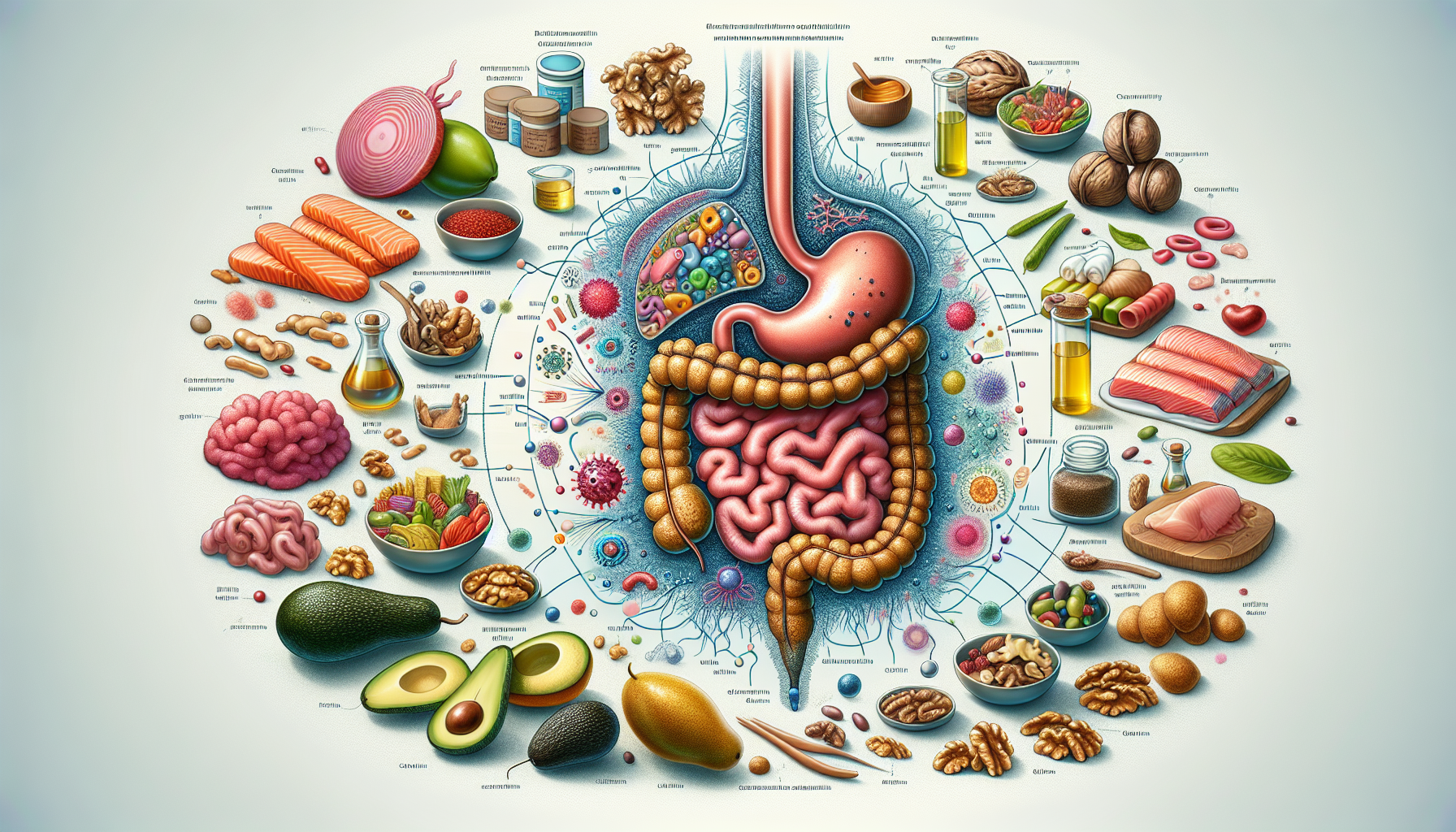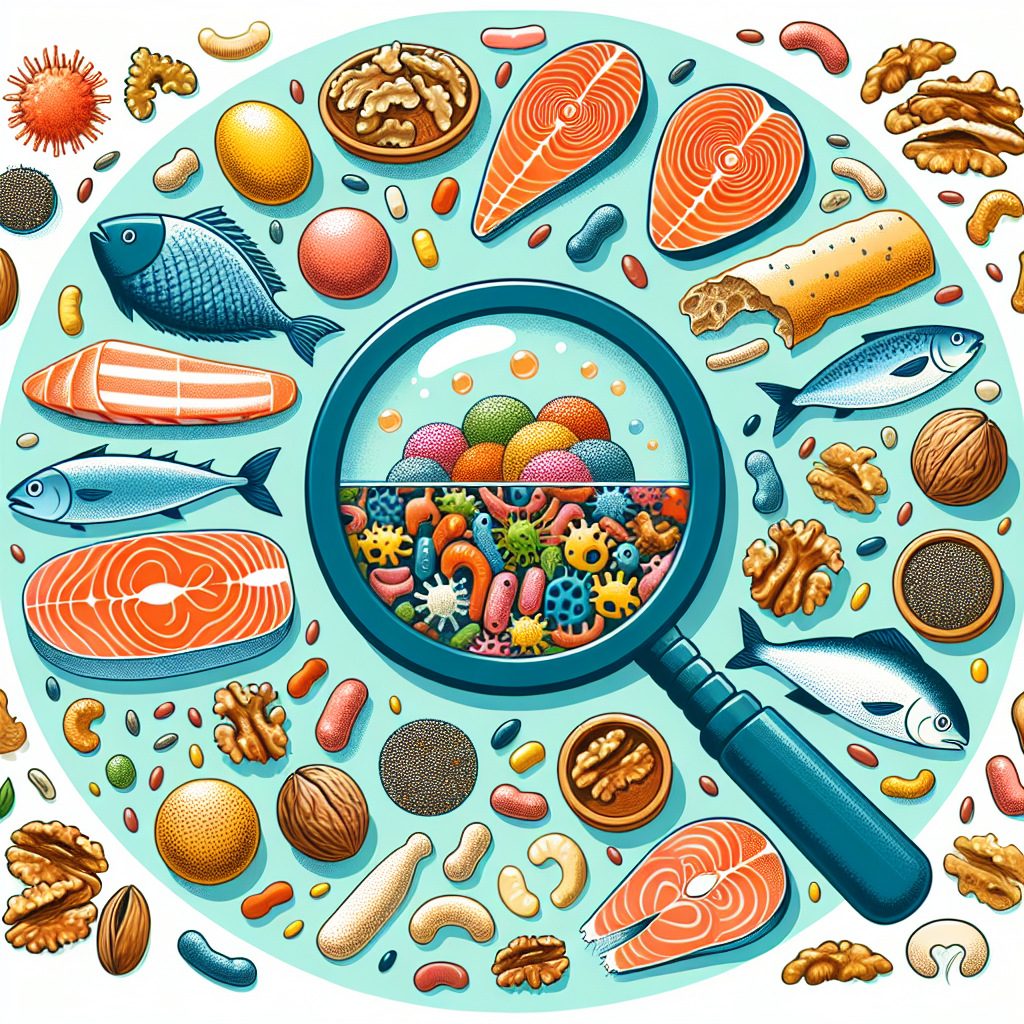In the intricate ecosystem of our body, the gut holds a pivotal role, being the cornerstone of our overall health. It is now well-established that what we eat directly influences our gut health, and in turn, our well-being. Among the numerous components of our diet, dietary fats have often been misunderstood and sometimes vilified. However, when integrated thoughtfully, fats can be beneficial and even essential for maintaining a healthy digestive system.
Understanding the Role of Fats in Digestive Health
Fats in our diet are not merely a source of energy; they are crucial for numerous bodily functions, including the absorption of fat-soluble vitamins (A, D, E, and K), hormone production, and the construction of cell membranes. Moreover, certain fats, such as medium-chain triglycerides (MCTs) and omega-3 fatty acids, exhibit anti-inflammatory properties that can support digestive health.
The Types of Fats and Their Impact on Gut Health
Fats can be categorized into saturated, monounsaturated, and polyunsaturated fats, each having a different impact on health.
Saturated Fats
Typically solid at room temperature, saturated fats are found in animal products and certain plant oils. While they are essential in moderation, excessive consumption can lead to health issues, including negative effects on gut health.
Monounsaturated Fats
These are heart-healthy fats found in olive oil, avocados, and nuts. They can positively affect the gut microbiota by promoting the growth of beneficial bacteria.
Polyunsaturated Fats
Polyunsaturated fats, particularly omega-3 fatty acids from fish and flaxseeds, are known for their anti-inflammatory effects. They can help in maintaining gut integrity and reducing inflammation.
The Link Between Fats and the Gut Microbiome
The gut microbiome is a complex community of microorganisms that reside in the digestive tract. Dietary fats can influence the composition and function of these microbes. For instance, a diet high in omega-3 fatty acids has been linked to an increase in the levels of beneficial bacteria, such as Lactobacillus and Bifidobacterium.
Balancing Fats for Gut Health
While fats are essential, balance is key. Integrating a variety of healthy fats and limiting the intake of trans fats and excessive saturated fats supports a healthy gut microbiome.
Strategies for Incorporating Healthy Fats
- Use Olive Oil: Rich in monounsaturated fats and polyphenols, olive oil can be a healthy choice for cooking and dressings.
- Eat Fatty Fish: Salmon, mackerel, and sardines are high in omega-3 fatty acids, which support gut health.
- Choose Nuts and Seeds: Almonds, chia seeds, and flaxseeds are good sources of healthy fats and fiber, which are beneficial for the gut.
- Avocado: With its high content of monounsaturated fats and fiber, avocados are great for gut health.
The Role of Sleep in Digestive Health
Sleep is another cornerstone of gut health. Quality sleep allows the digestive system to repair and maintain its lining, which is essential for nutrient absorption and gut integrity. To learn more about the role of sleep and its connection to the digestive system, you can visit The Role of Sleep in Digestive System Repair.
Addressing Challenges: The Effects of Poor Fats on Gut Health
Just as healthy fats can support the gut, poor-quality fats, such as trans fats and excessive saturated fats, can be detrimental. They may lead to an increase in gut permeability and inflammation, contributing to conditions such as leaky gut syndrome and inflammatory bowel disease. For insights on strengthening the gut lining, one might explore Ways to Strengthen the Gut Lining and Prevent Permeability.
The Importance of Hydration and Nutrient Absorption
Hydration, too, is a critical aspect of digestive health. Chronic dehydration can impact the digestive system’s ability to function properly. Coupled with the right balance of dietary fats, adequate water intake ensures that nutrients are efficiently absorbed. How Stomach Acid Levels Affect Nutrient Absorption provides a deeper understanding of the interplay between hydration, stomach acid levels, and nutrient uptake.
External High-Quality Resources for Further Reading
To expand your understanding of the role of dietary fats in gut health, consider exploring these niche resources:
- The Gut Microbiome and Dietary Fat – A detailed study on how different types of dietary fats affect the gut microbiome.
- Omega-3 Fatty Acids and Inflammatory Processes – Research on the mechanisms by which omega-3 fatty acids modulate inflammatory processes.
- Dietary Fats and the Microbiome – An article reviewing how dietary fats influence the diversity and function of gut bacteria.
- The Impact of Fats on the Gut-Brain Axis – Insights into how dietary fats affect the communication pathways between the gut and the brain.
- Saturated Fats and Health: A Reassessment and Proposal for Food-based Recommendations – A reassessment of the impact of saturated fats on health and guidelines for consumption.
In conclusion, dietary fats play an indispensable role in gut health, and their thoughtful integration into the diet can lead to a robust and well-functioning digestive system. By choosing the right types of fats, monitoring intake, and considering the synergy between diet, sleep, and hydration, we can nurture our gut microbiome and enhance our overall health.



